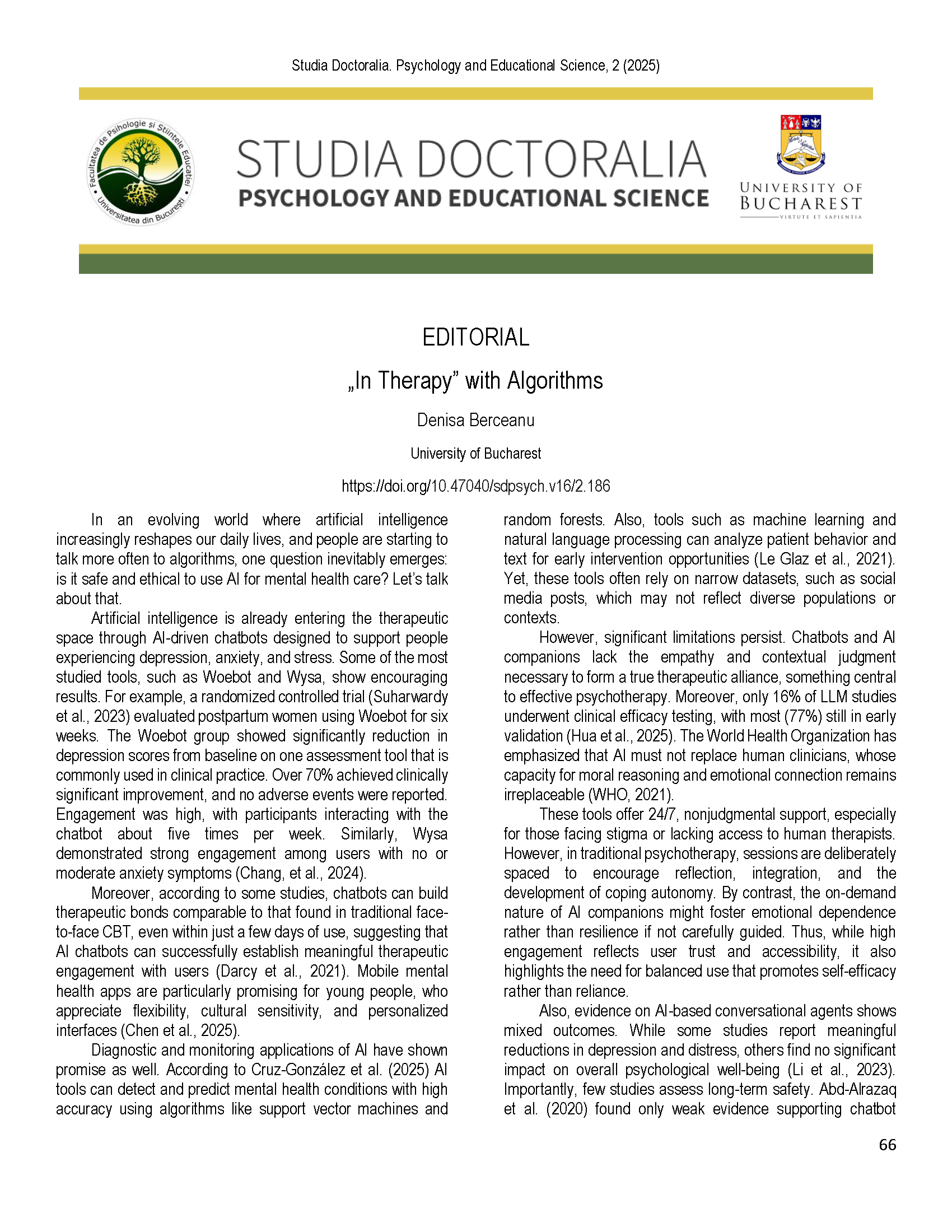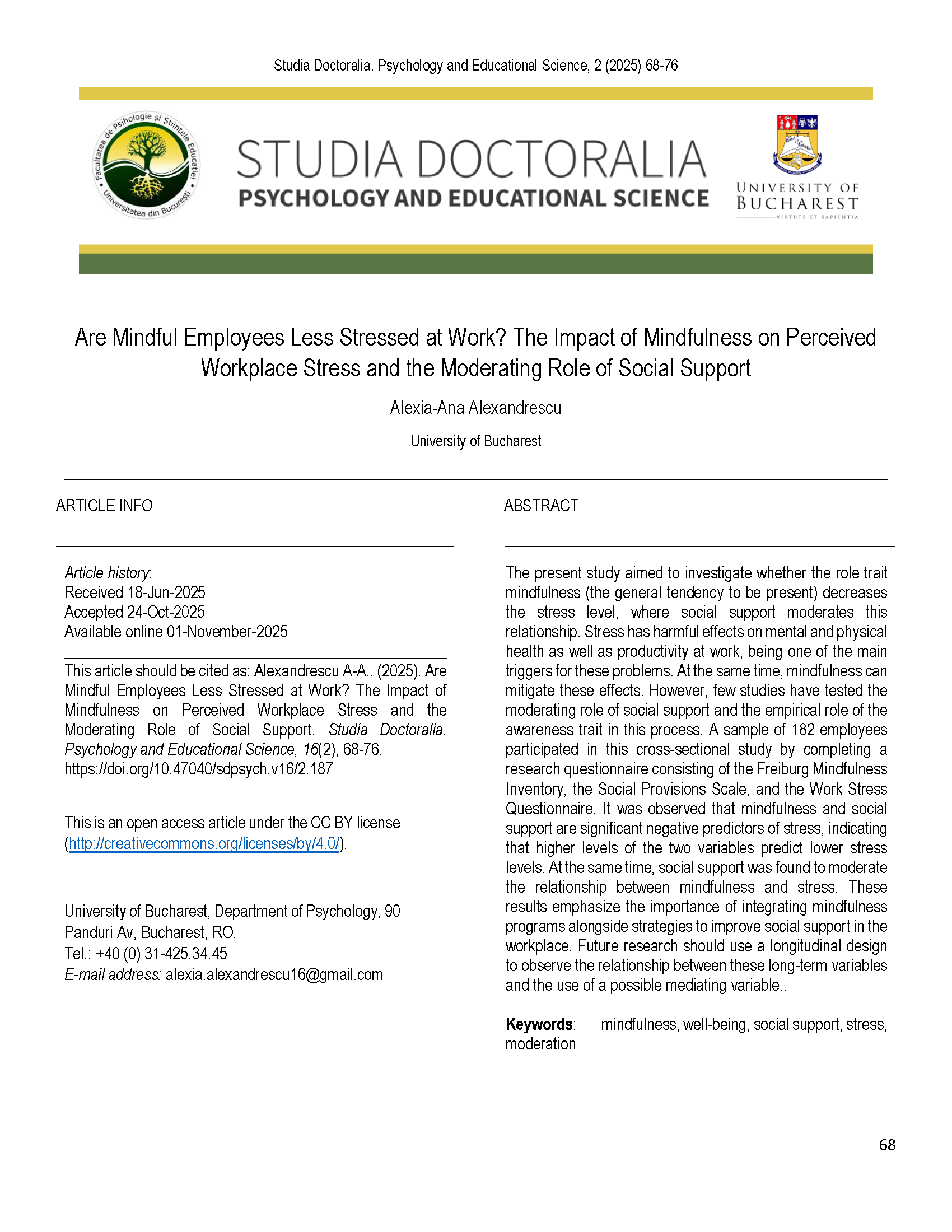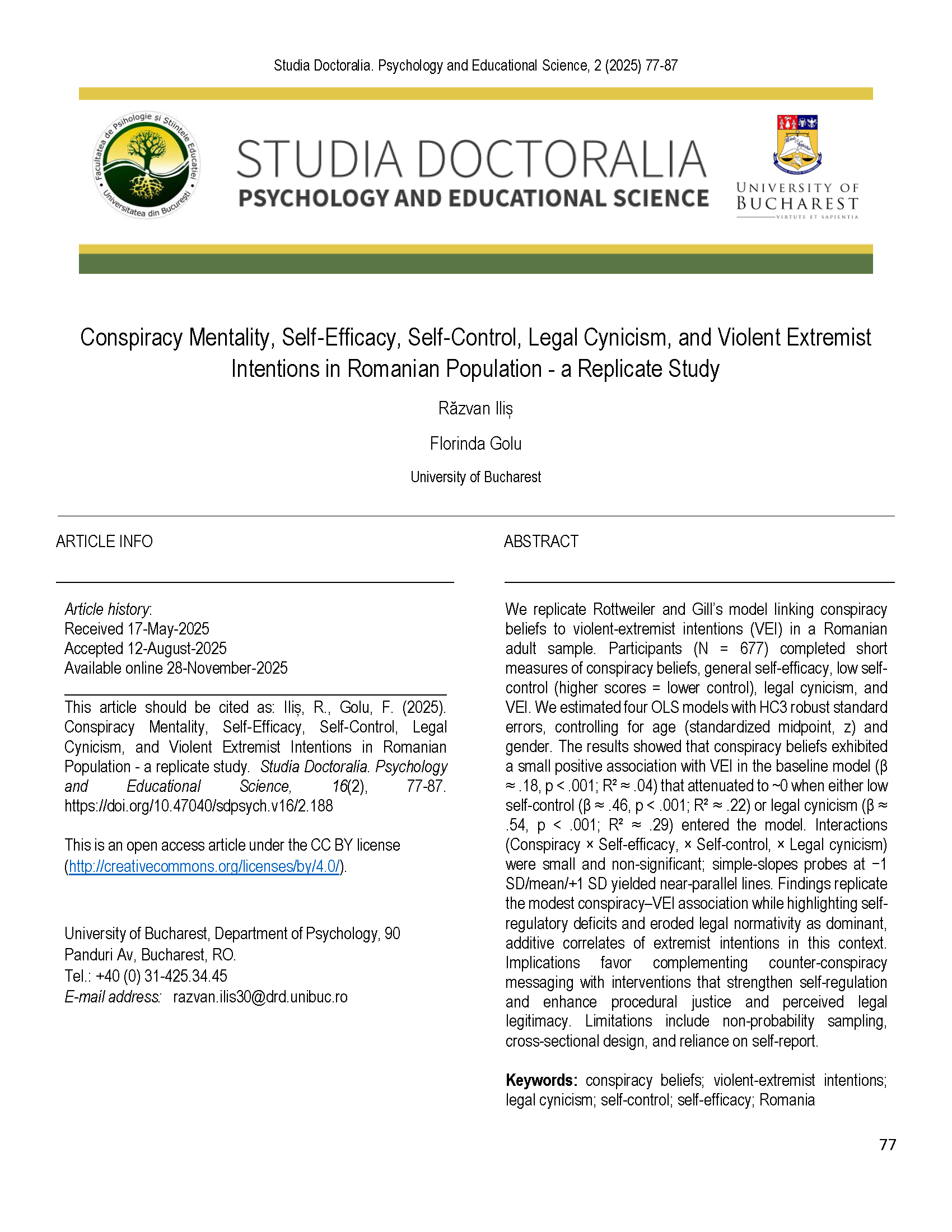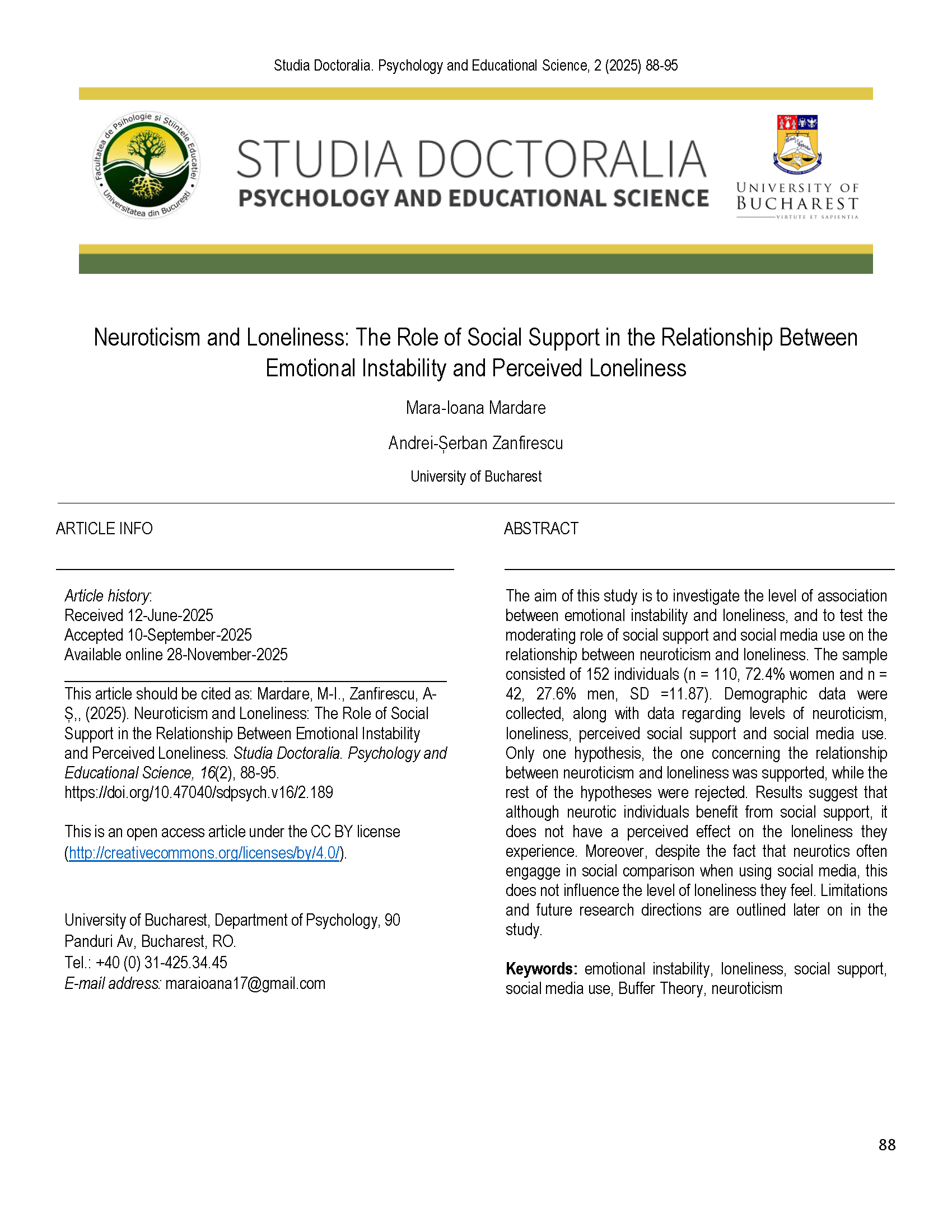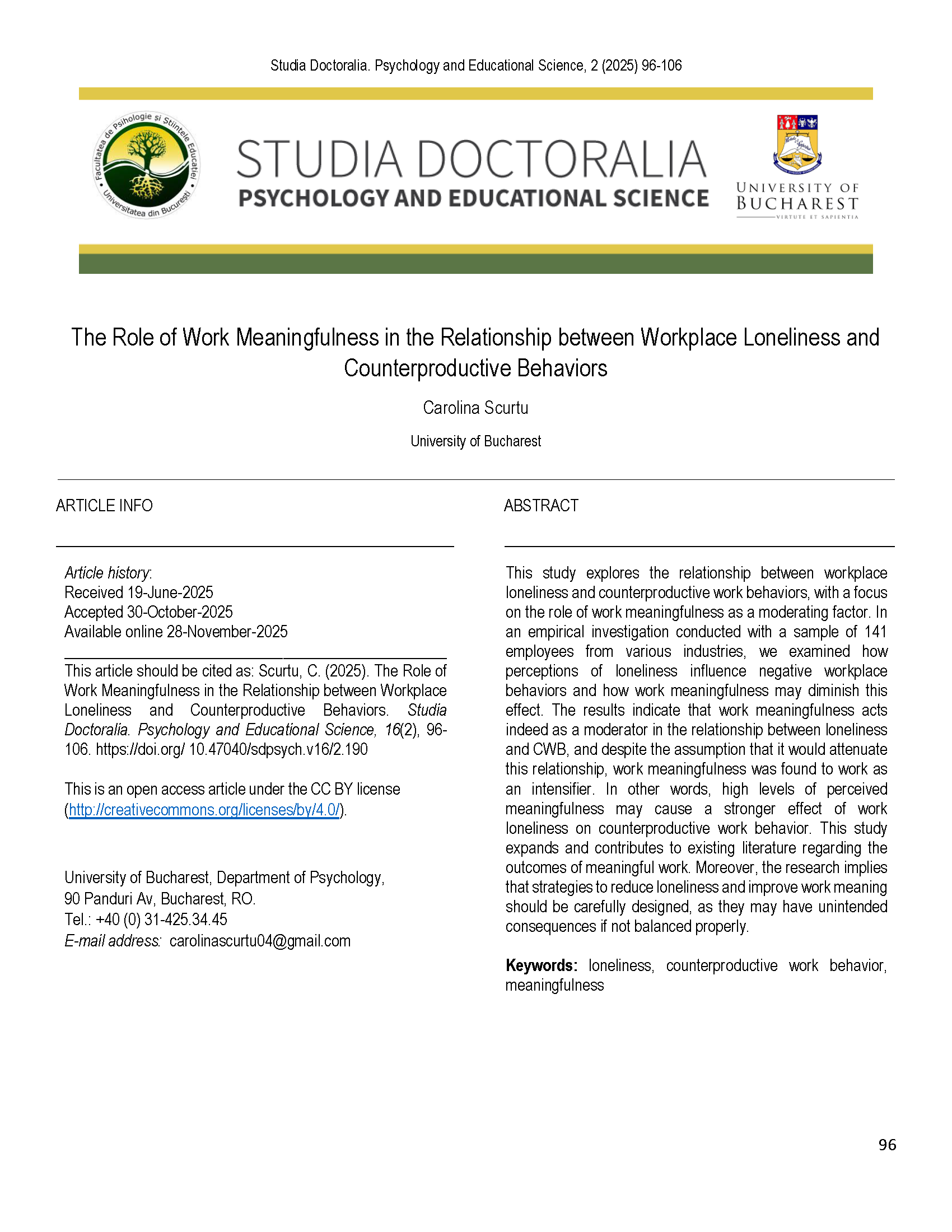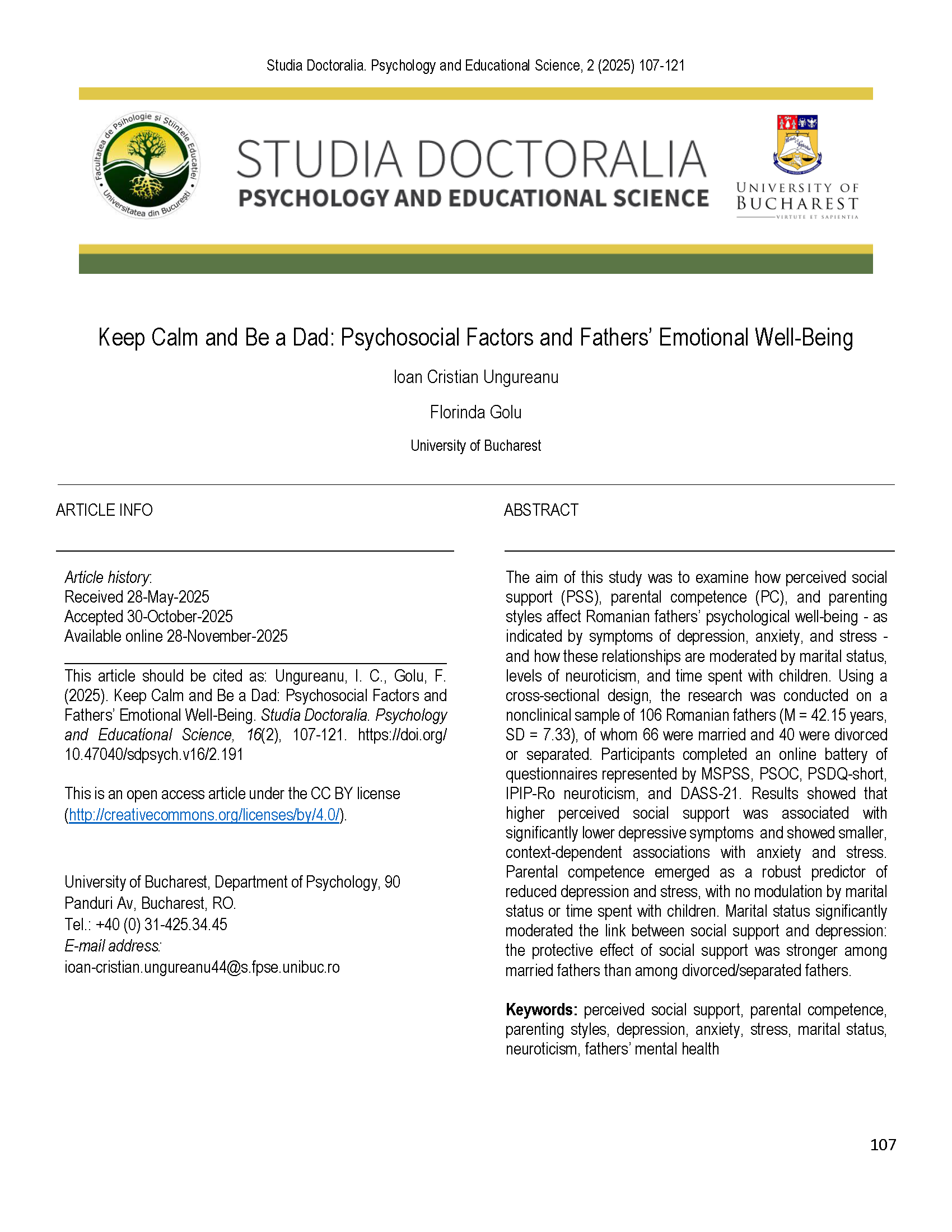About the Journal
Studia Doctoralia Psychology and Educational Science is the official journal of The Doctoral School of Psychology and Educational Sciences, University of Bucharest, Romania, published by the Doctoral Centre for Interdisciplinary Research, Innovation and Sustainable Development (CCIIDD).
Studia Doctoralia is indexed by Google Scholar, ROAD (Directory of Open Access Scholarly Resources) and SCIPIO (Scientific Publishing & Information Online; CNCSIS - UEFISCDI institution).
Studia Doctoralia is also registered in ICI World of Journals database (Index Coperncius International).
All articles will receive a DOI indexed by CrossRef.
Current Issue
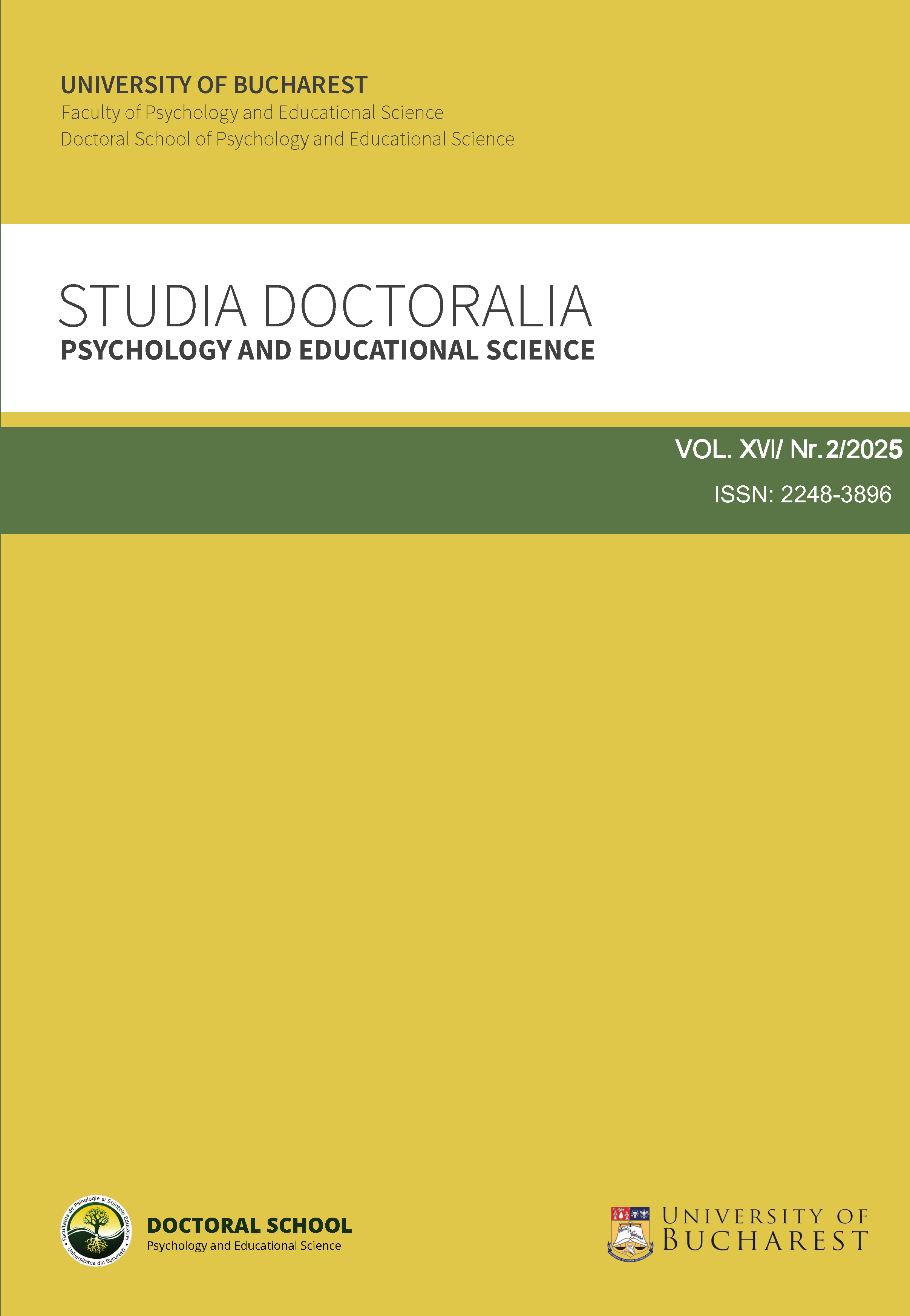
Studia Doctoralia Psychology and Education is the official journal of The Doctoral School of Psychology and Education Sciences, University of Bucharest, Romania, published by the Doctoral Centre for Interdisciplinary Research, Innovation and Sustainable Development (CCIIDD). Audience and potential contributors include scholars, educators, consultants, practitioners, doctoral students, teachers and other professionals from all over the world and in all the applied fields of psychology and education science.

